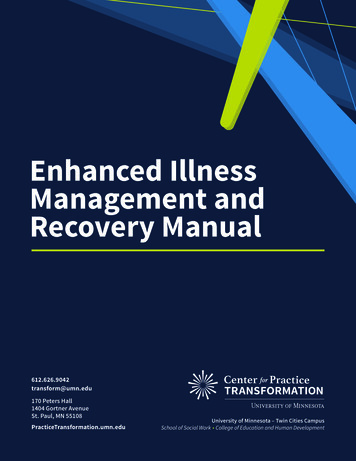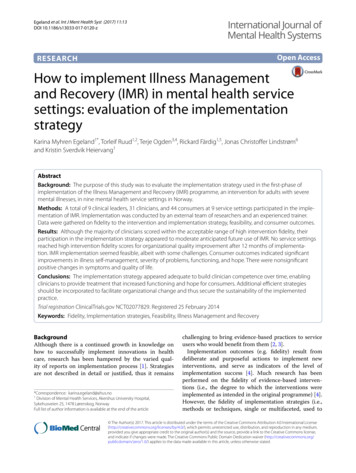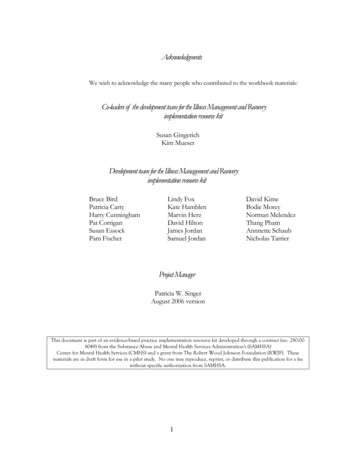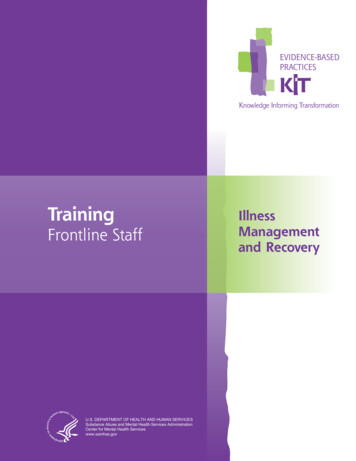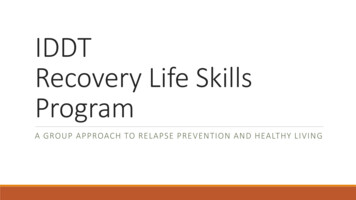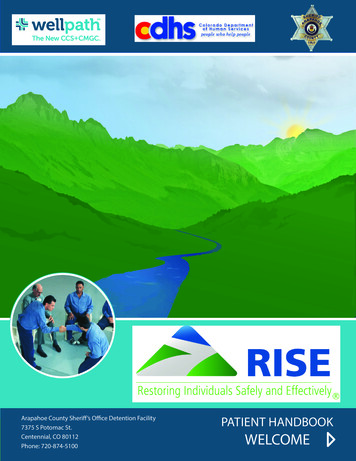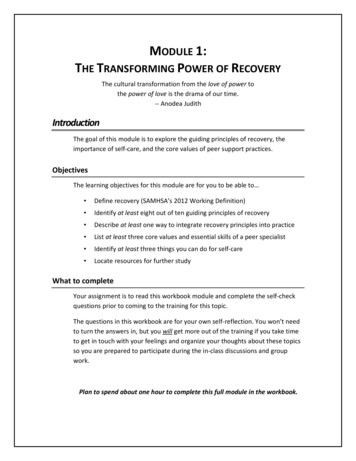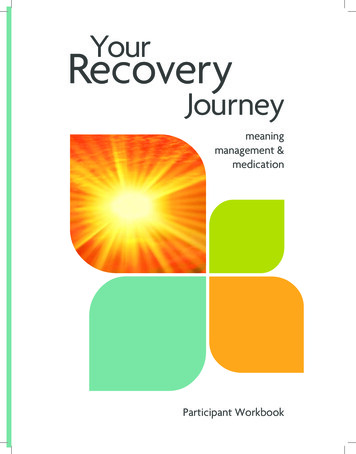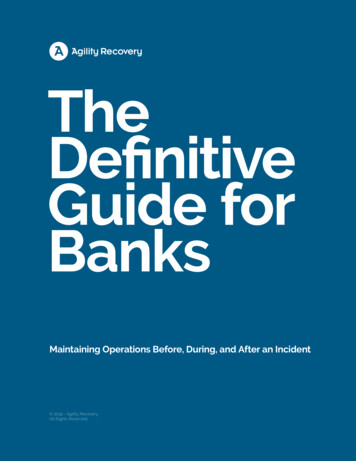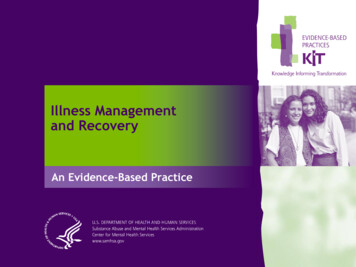
Transcription
Illness Managementand RecoveryAn Evidence-Based Practice
What Are Evidence-Based Practices?Services that have consistently demonstratedtheir effectiveness in helping people withmental illnesses achieve their desired goalsEffectiveness was established by differentpeople who conducted rigorous studies andobtained similar outcomes2
Examples of Evidence-Based Practices Illness Management and Recovery Integrated Treatment for Co-OccurringDisorders Supported Employment Assertive Community Treatment Family Psychoeducation3
Why Implement Evidence-Based Practices?According to the New Freedom Commissionon Mental Health:State-of-the-art treatments, based on decadesof research, are not being transferred fromresearch to community settings4
Why Implement Evidence-Based Practices?(continued)According to the New Freedom Commissionon Mental Health:If effective treatments were more efficientlydelivered through our mental healthservices system millions of Americanswould be more successful in school, at work,and in their communities—Michael Hogan, Chairman5
What Is Illness Management and Recovery(IMR)?By providing information about mental illnessesand coping skills, IMR empowers consumers to: Manage their illnesses; Develop their own goals for recovery; and Make informed decisions about theirtreatment.6
Practice Principles Consumers definerecovery.Education about mentalillnesses is thefoundation of informeddecisionmaking.The Stress-VulnerabilityModel provides ablueprint for illnessmanagement. Collaborating with professionalsand significant others helpsconsumers achieve theirrecovery goals.Relapse prevention planningreduces relapses andrehospitalizations.Consumers can learn newstrategies for managing theirsymptoms, coping with stress,and improving their quality oflife.7
How Is IMR provided?Trained IMR practitioners meet weekly withconsumers either individually or as a group for3 to 10 months.Critical components of IMR are summarized ineducational handouts that practitionersdistribute and review with consumers duringthe sessions.8
Topic Areas in IMR Handouts Recovery strategies Drug and alcohol usePractical facts onmental illness Reducing relapses Coping with stressStress-VulnerabilityModel and treatmentstrategies Building social support Coping with problemsand persistent symptomsUsing medicationeffectivelyGetting your needs metin the mental healthsystem9
How Is IMR provided?(continued)Practitioners provide a variety ofinterventions including: Psychoeducation; Behavioral tailoring (for consumers whochoose to take medication); Relapse prevention; and Coping skills training.10
PsychoeducationPsychoeducation uses evidence-basedteaching methods to provide basicinformation about mental illnesses andtreatment.11
Behavioral TailoringConsumers who choose to takemedications learn strategies to helpmanage daily medication regimes.12
Relapse PreventionRelapse prevention involves helpingconsumers identify triggers of pastrelapses and early warning signs ofimpending relapse.Consumers learn how to develop plansfor preventing relapses.13
Coping Skills TrainingCoping skills training helps consumersidentify and enhance effective strategiesthat they currently use to deal withsymptoms.Consumers also learn and practice usingnew strategies.14
SummaryIMR provides education about mental illnessesand strategies that help consumers manage theirillnesses and pursue personal recovery goals.People are empowered by knowledge. The moreconsumers understand the basic facts about theirmental illnesses, the better equipped they are tospeak for themselves and take an active role intheir recovery.15
Additional ResourcesFor more information aboutIllness Management and Recovery and otherevidence-based practices, visit:http://www.samhsa.gov/SHIN16
recovery. Education about mental illnesses is the foundation of informed decisionmaking. The Stress-Vulnerability Model provides a blueprint for illness management. Collaborating with professionals and significant others helps consumers achieve their recovery goals. Relapse pre
